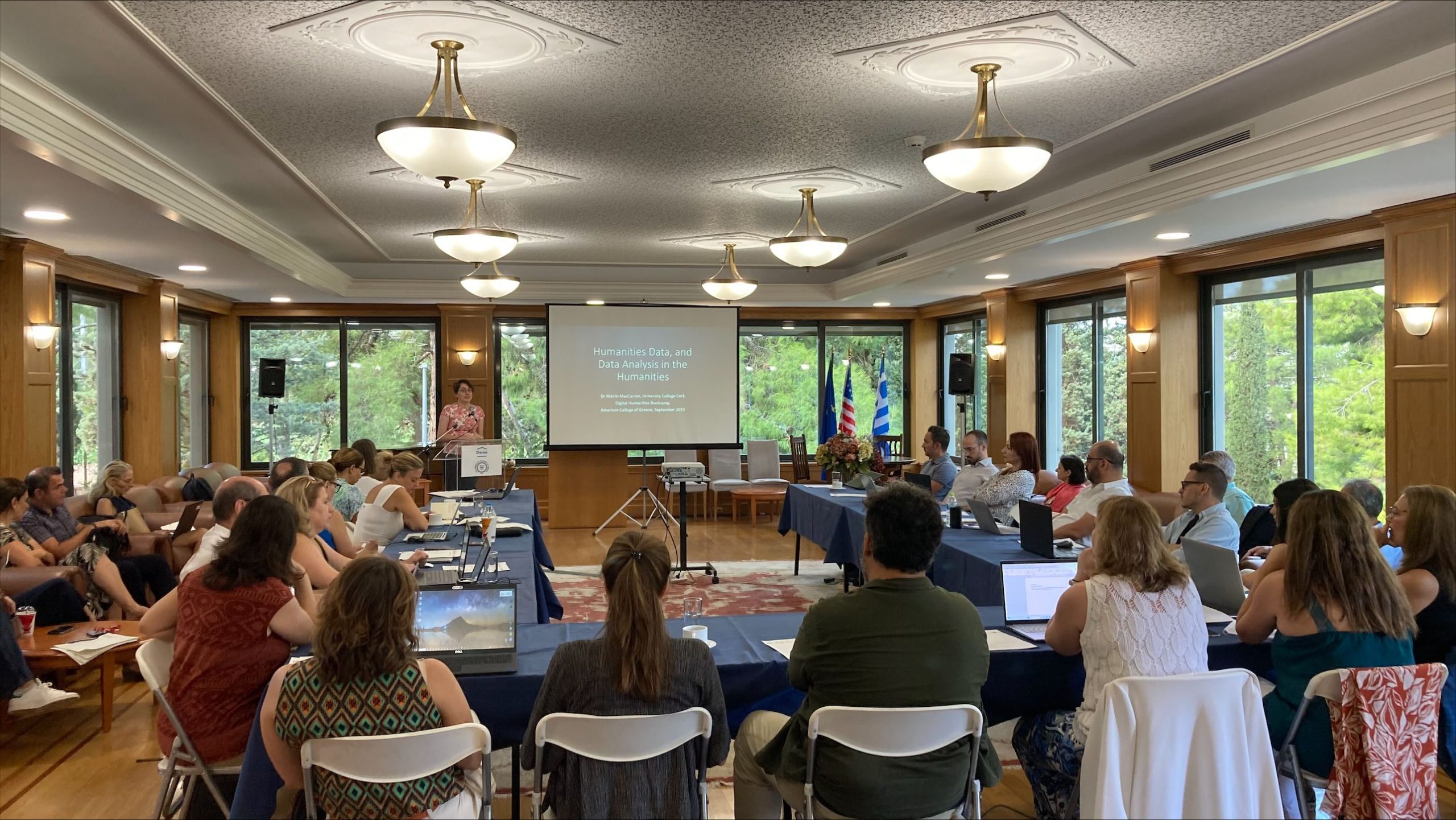
The American College of Greece (ACG) made a significant stride in the field of digital humanities by hosting its first Digital Humanities Bootcamp from September 4-7, 2023. This event saw the participation of 40 eager scholars and featured an impressive lineup of distinguished academics running the masterclasses and seminars. Mairin MacCarron, Senior Lecturer in Digital Humanities at the University College Cork, Kalliopi Zervanou, Assistant Professor of Computer Engineering at Leiden University, Thomas Smits, post-doctoral Fellow of Modern Visual Culture at the University of Antwerp, and Ignacio Aguiló, Associate Professor in Latin American Cultural Studies at the University of Manchester offered a comprehensive training program on network science, text mining, metadata standards and ontologies, as well as multimodal machine learning and decolonization in digital humanities. During the opening remarks, Panos Vlachopoulos, Executive Dean at Deree – ACG, Helena Maragou, Dean of the School of Liberal Arts and Sciences, Deree – ACG, and Eirini Karamouzi, Associate Professor of Contemporary History, Deree – ACG, emphasized the importance of this initiative in broadening the horizons of digital humanities research. The bootcamp was organized in collaboration with the ACG Institute for Hellenic Culture and the Liberal Arts (IHCLA), the ACG Center of Excellence in Food, Tourism, and Leisure (CoEFTL) and generously funded by Research England.
The bootcamp addressed the definitional dilemma of the term ‘digital humanities’, with speakers discouraging any sense of uniformity and admitting that the term means ‘many things to many people.’ For Dr. MacCarron, the big question is how humanities scholars can bring the human in the digital. Large-scale quantitative analysis and distant reading are important in parsing the data, democratizing the process of research but computers cannot read the material, it’s the academics that intervene to pose the vital research questions. Along the same lines, Dr. Aquilo presented his project on decolonizing the digital humanities and digital ethnography, reminding us how technology has multiple meanings, it’s never neutral, and ultimately, its charged with legacies, histories and political identities. Dr. Zervanou then presented in detail the available tools, benefits, and restrictions of text mining. She emphasized the need for researchers across disciplines, to understand the utility of metadata and the different knowledge resources, ranging from simple index to ontology. On the other hand, Dr. Smits voiced his concern about the overwhelming focus of digital humanities on the analysis of the text, a direct result of the ‘practical revolution’ in OCR and NLP. He praised recent attempts to shift the research towards the increasing importance of virtual culture and the rise of computational study of images. His team has been working on multimodal digital humanities, looking at how meaning is produced with a combination of both texts and images. The instructors each day held lively discussions with the participants, and the bootcamp became a fantastic opportunity to enhance our knowledge of digital research methods, gain practical experience with tools and techniques, and explore the potential of digital projects to engage and inform the wider public.
